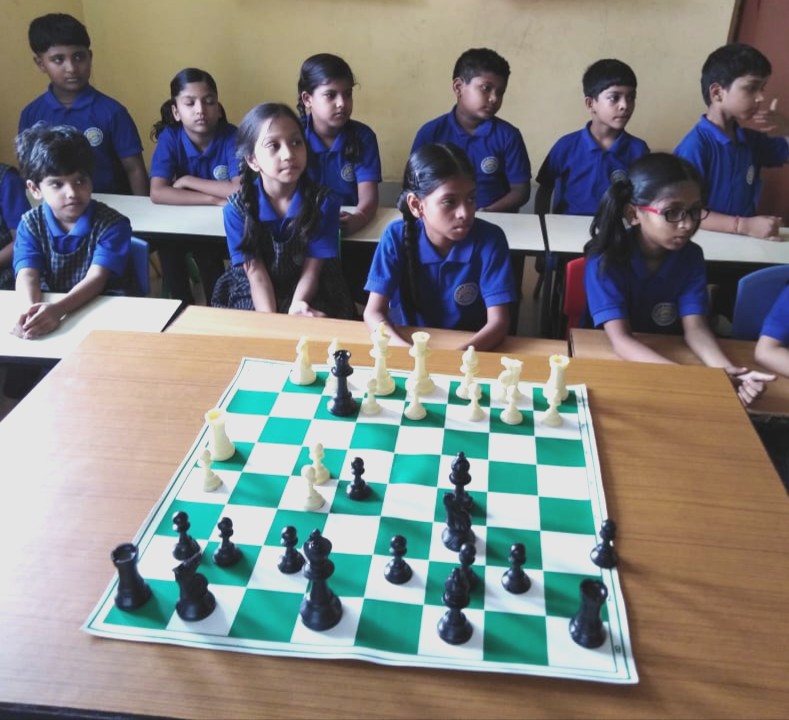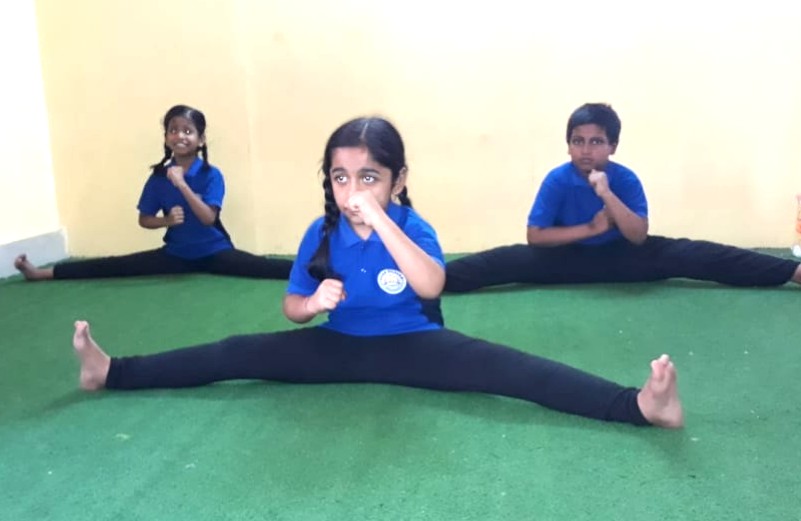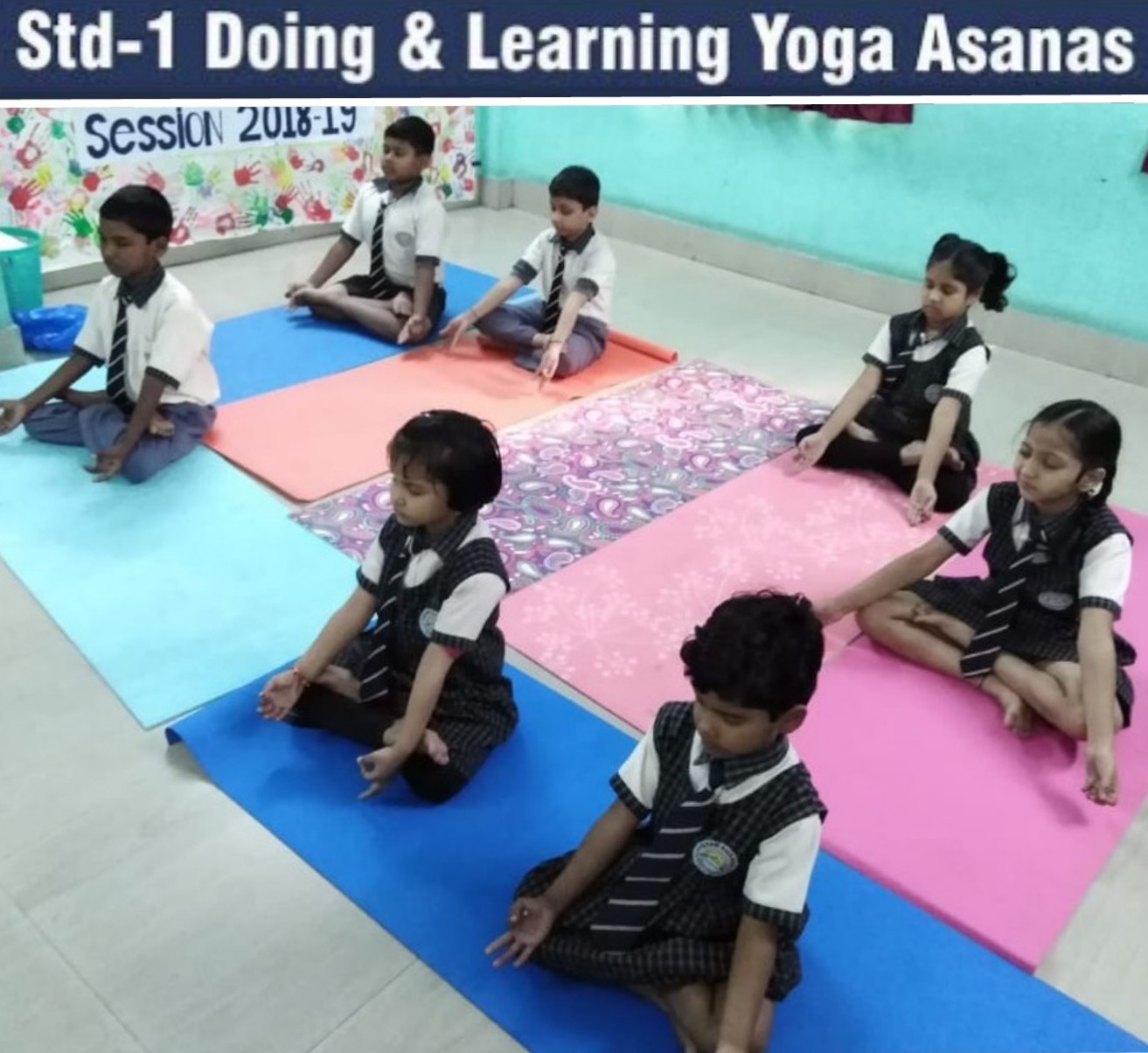| INSTRUCTURAL PROGRAMME |
| OUR PROGRAMME |
| Children of the ages between 18 months and 9 years are extremely receptive. Gyan Bhavan Little Star’s fun-filled program makes the most of this by encouraging the children to understand and develop basic language skills while also developing social skills, gross and fine motor skills and creativity at the same time, through songs, music, and imaginative play. At Gyan Bhavan Little Star, we strongly believe that each child is a unique person and imbibes social, physical, and intellectual behavior over a period of time. Gyan Bhavan Little Star is a kind of place where every child can arrive with a smile on their face, where there is a keen sense of belonging. We believe that all children have a voice to be heard and that their care and education must lie at the heart of everything we do. Interesting themes and concepts are covered at GYAN BHAVAN LITTLE STAR which makes learning a unique, fun experience for the children. All events and festivals are celebrated with enthusiasm all through the year. Life skills are a part of the “Curriculum" of learning experiences offered within a classroom setting at GYAN BHAVAN LITTLE STAR. The child learns to become a productive group member, solve problems, remember rules, and develop an understanding of cause/effect. |
| We are offering |
 Gross Motor Skills which require balance and coordination, and are developed through activities such as running, climbing, hopping, and playing with ball and bat. Gross Motor Skills which require balance and coordination, and are developed through activities such as running, climbing, hopping, and playing with ball and bat. |
 Fine Motor Skills with which children develop the abilities to do such things as write and manipulate small objects. These are developed through activities like playing with dough, sorting, dressing, coloring, and craft Fine Motor Skills with which children develop the abilities to do such things as write and manipulate small objects. These are developed through activities like playing with dough, sorting, dressing, coloring, and craft |
 Mathematical concepts are understood through activities that include matching objects, sorting and classifying by attribute, using comparative terms, labeling numerals ,recognizing no’s. and rote reciting of no’s. Mathematical concepts are understood through activities that include matching objects, sorting and classifying by attribute, using comparative terms, labeling numerals ,recognizing no’s. and rote reciting of no’s. |
 Science Concepts are understood through activities that include observing and identifying body parts, using the five senses, colors, classifying and categorizing animals, identifying opposites and learning about natural resources. Science Concepts are understood through activities that include observing and identifying body parts, using the five senses, colors, classifying and categorizing animals, identifying opposites and learning about natural resources. |
 Language concepts are developed through activities that include listening, dramatic play, recalling story events following verbal directions, matching and labeling letters, utilizing language to form questions identifying letter-sound relationships and recognizing and writing letters and words phonetically. Language concepts are developed through activities that include listening, dramatic play, recalling story events following verbal directions, matching and labeling letters, utilizing language to form questions identifying letter-sound relationships and recognizing and writing letters and words phonetically. |
 Life Skills is a diverse area, where children are taught the importance of using positive manner in both words and attitudes, learning to follow directions, learning to solve problems verbally instead of using physical means and more. Life Skills is a diverse area, where children are taught the importance of using positive manner in both words and attitudes, learning to follow directions, learning to solve problems verbally instead of using physical means and more. |
 Music Skills help children to acquire language and a sense of rhythm. It includes copying movements, moving physically to music, dancing and using creative movement, expressing mood through movement and identifying instruments by name. Music Skills help children to acquire language and a sense of rhythm. It includes copying movements, moving physically to music, dancing and using creative movement, expressing mood through movement and identifying instruments by name. |
 Art and Craft are a necessary part of a child’s learning curriculum. It includes drawing, painting, pasting, tearing, and cutting, rolling papers, rubbing, and mixing colors. Art and Craft are a necessary part of a child’s learning curriculum. It includes drawing, painting, pasting, tearing, and cutting, rolling papers, rubbing, and mixing colors. | | | | |
|
| At our junior house careful attention is given to the social, physical, and emotional development of the child along with exposure to music and creative expression. |
| ACADEMIC SUBJECTS |
 NURSERY - English, Math, EVS, G.K NURSERY - English, Math, EVS, G.K |
 KINDERGARTEN -English, Vernacular, Math, Science, G.K KINDERGARTEN -English, Vernacular, Math, Science, G.K |
 I-II- English, Vernacular, Math, EVS, G.K, Computer Science. I-II- English, Vernacular, Math, EVS, G.K, Computer Science. |
 III-V - English, Vernacular, Math, Science, EVS, G.K, Computer Science. III-V - English, Vernacular, Math, Science, EVS, G.K, Computer Science. |
| |
| ASSESSMENT PROCEDURES |
| As per the new pattern, students will be assessed in two areas: Scholastic and Co-scholastic. For assessment of the scholastic areas, the academic year is divided in two terms and two types of tests will be conducted to assess the academic subjects. |
| |
| Formative Assessment |
| The Formative Assessment is a tool for a teacher to continuously monitor the progress of the student. The assessment (in Secondary) may include quizzes, conversations, oral testing, visual testing, projects, practical assignments, class tests, class-work, homework, etc. The teacher is free to take any number of formative tests in his/her subject during the year but only four formative tests will be taken into account in each subject. Performance of the students will be reflected in grades. |
| |
| Summative Assessment |
| The Summative Assessment is the terminal assessment of performance at the end of a term. The students will be tested internally. The Summative Assessment will be carried out in the form of a pen-paper test conducted by the schools themselves. It will be conducted at the end of each term twice in a year. |
| |
| Grading System |
| All assessments with regard to the academic status of the students shall be done in marks and over-all assessment will be given in grades in 9 point scale in secondary (classes VI to X). The report cards will carry the grades only. The grades will be given on the basis of performance of the students in all the 6 tests. |
| |
| EXTRA CURRICULAR ACTIVITIES |
| At GBHS we offer a variety of activities which are suitable for different age-groups, including Art, Music, Dance, & a wide range of sports activities. The range of activities provided each year, changes according to the changing demands of the community. We give our students correct environment and requisite facilities to learn new skills and enjoy themselves while participating in various activities. |
| |
| 1. Performing arts in the classrooms to develop an interest and aptitude for singing, dance, movement, and coordination. |
| 2. Visual Arts in the form of drawing, art and craft as well as other student activity. |
| 3. SEWA – Social Empowerment through work and action; SEWA will involve enhanced choice of engaging with the families and the community in creating lasting values in the mindset of the youngsters. The activity will give students robust knowledge of centered ideas to implement in a relatively regulated setting. |
|
| |
| List of activities for different classes are as follows – |
| Gyan Bhavan Howrah School students are not a bookworm. Co-curricular activities (CCA) for pupils of Classes I to V of the CBSE Stream make the School calendar an action-packed one. The options are: |
| Throw ball |
| P.T. |
| Dancing |
| Music |
| Karate |
| Drama |
| Debating |
| Quizzing |
| Cultural activities with Intra School |
| Art & craft |
| Public speaking |
| Computer club |
| Interact club |
| Nature club |
| Aerobics |
| Cartoon making |
| Creative dancing |

|
|
| |
| Mix Martial Art Training Classes |

|
| Learning Mix Martial Art is compulsory in Gyan Bhavan Howrah School from class I onwards. Pupils from Classes I to V take lessons from professional coaches in the Kyokushin style. On the days Mix Martial Art Classes are scheduled, pupils are to come to School in the Mix Martial Art uniform, failing which they will not be allowed to attend classes. |
| |
| Yoga Classes |

|
| Regular Games sessions are held for Classes Kindergarten to V in Gyan Bhavan Howrah School which helps bring up healthy and happy pupils. |
| In Gyan Bhavan Howrah School Physical Education classes are a perfect blend of Yoga. Yoga sessions are compulsory for Classes II to V. These sessions are aimed at helping students with stress management and taking care of their physical and mental health. On the Yoga Classes are scheduled, pupils are to come to School in the P.T uniform, failing which they will not be allowed to attend classes. |
| |
| The Helping Hand, Daan Utsav |
| Social service features in a big way in the Gyan Bhavan Howrah School calendar throughout the year. School students celebrating sharing and giving – spend much time reaching out to the old, the infirm and the underprivileged sections of society. |
| |
| "Charity begins at home" but for a bunch of GBHS students it began at Missionaries of Charity when they have visited the Saint Mother Teresa Missionaries Of Charity Orphanage and Nirmala Sishu Bhavan,Kolkata on 18th December,2018. They have distributed clothes, winter garments, food items,health care products, Ex.Books, stationary and toys to the children of Sishu Bhavan which were magnanimously donated by the chidren of Nursery to class V. |
| |
| INTRA SCHOOL QUIZ COMPETITION |
| The prime focus of the quiz competition is to nurture the inquisitive nature and the insatiable curiosity in every child, to make the children aware of the past and the present. In the process , they inculcate reading habits and fact finding techniques and it hones their quizzing skills , too . |
| |
| COOKING WITHOUT FIRE |
| This competition encourages children to do cooking without fire. The children are nurtured to bring out their creativity as cooking is a very relaxing and enjoyable pass time. |
 NURSERY - English, Math, EVS, G.K
NURSERY - English, Math, EVS, G.K KINDERGARTEN -English, Vernacular, Math, Science, G.K
KINDERGARTEN -English, Vernacular, Math, Science, G.K I-II- English, Vernacular, Math, EVS, G.K, Computer Science.
I-II- English, Vernacular, Math, EVS, G.K, Computer Science. III-V - English, Vernacular, Math, Science, EVS, G.K, Computer Science.
III-V - English, Vernacular, Math, Science, EVS, G.K, Computer Science.

